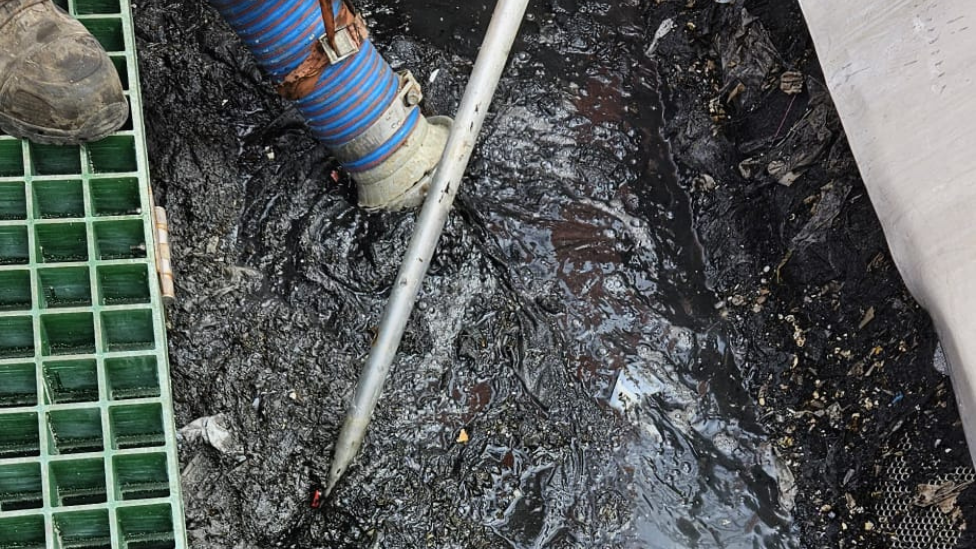'Whale-sized' fatberg removed from city sewer

The work involved the removal of congealed fat, oil, grease and wipes
- Published
A fatberg described as equivalent in size to a blue whale - the largest animal known to have existed - has been removed from a large sewer beneath a city.
Thames Water said it took two weeks for its teams to remove the 120-tonne, more than 1km-long (0.6 mile) fatberg from a trunk sewer under Oxford.
The water company said the "complex operation" involved the removal of congealed fat, oil, grease and wipes from the pipe - which is located 66ft (20m) underground.
Found in sewers, fatbergs are can cause serious blockages and environmental hazards.

Thames Water said it took two weeks to clear the fatberg
Thames Water said its removal proved "challenging" and "required careful planning with safety as a top priority"
This was due to factors including the pipe's size and depth underground, high gas levels, elevated by the fatberg, and the need to maintain the city's wastewater flow, it continued.
It said it had already cleared more than 35,000 sewer blockages this year, with about 75,000 blockages estimated each year for the firm at a cost of £18m.
Jamie Whitmore, from Thames Water, said the Oxford fatberg was a "powerful reminder" for people to only flush urine, excrement and paper down their toilets so it could "continue to keep our sewers flowing and reduce the risk of flooding, blockages and pollutions".
Get in touch
Do you have a story BBC Oxfordshire should cover?
You can follow BBC Oxfordshire on Facebook, external, X (Twitter), external, or Instagram, external.